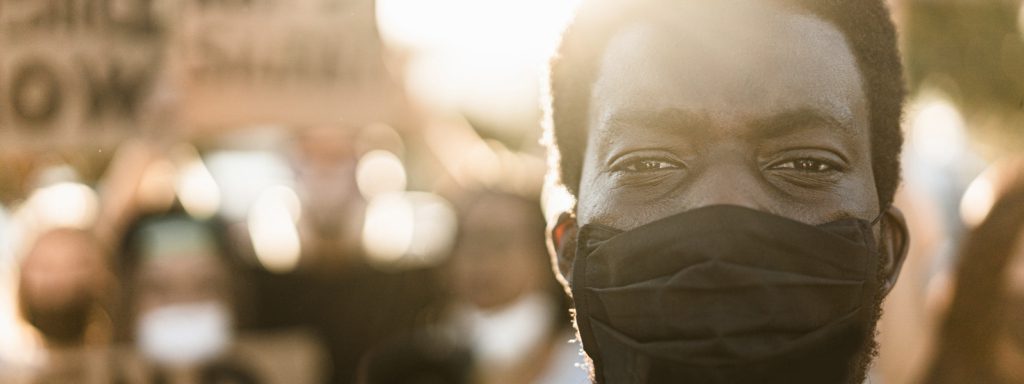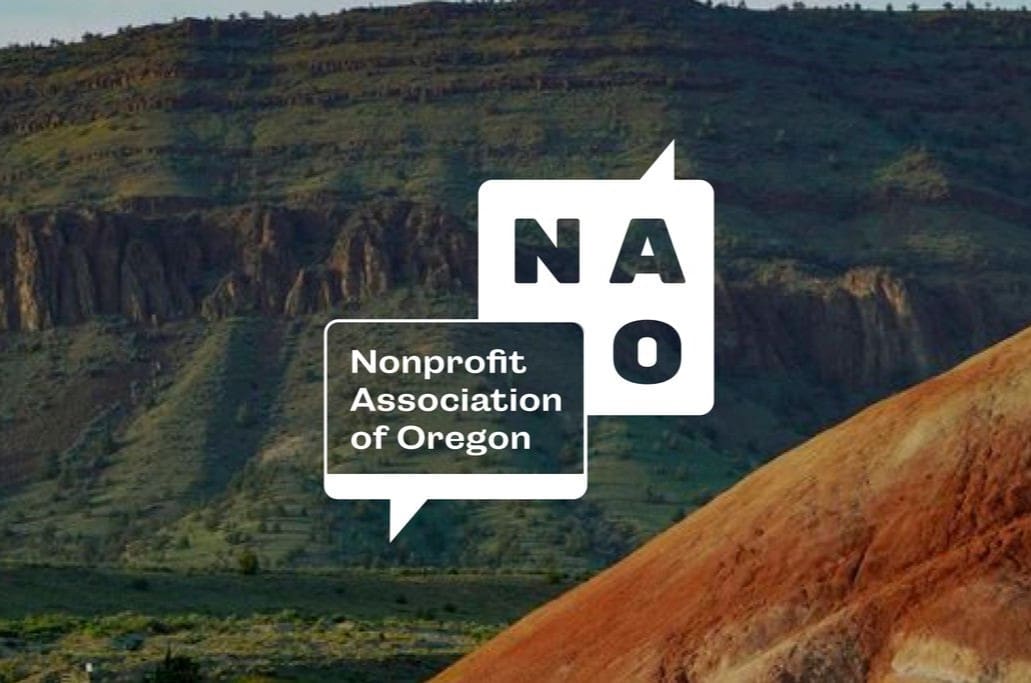[vc_row][vc_column][vc_column_text]Advocacy, simply put, is speaking out on behalf of something or someone you care about. Being passionate and out loud about a cause. Supporting or petitioning for the rights of others. Whether you realize it or not – it’s what we as changemakers do every day. We advocate for our communities, for fairness, for justice, for a better environment – in short, for a healthier and more equitable future where all can thrive. And we want our advocacy to resonate with public officials, who can put the policies in place to bring the changes we seek to fruition.
The recent and massive successes achieved for civil society weren’t the result of happenstance. They were due to compelling and impactful advocacy – which was the focus of our May 11 Upswell Pop-Up, You Can’t Change Systems Without Advocacy. We explored the mechanics of advocacy – what we can take from the twin crises of the pandemic and racial injustice to strengthen our advocacy efforts, and how we must work collectively to build the better nation we all want.[/vc_column_text][/vc_column][/vc_row][vc_row][vc_column][vc_single_image image=”20234″ img_size=”medium” alignment=”center” css=”.vc_custom_1617802265644{padding-top: 40px !important;padding-bottom: 40px !important;}”][vc_column_text]
Driving Action in Times of Opportunity and Resistance
As with most things in life, the path is rarely straight – including the path to environmental justice, or voting, or immigrant rights. Three nationally known and passionate advocates shared their experiences to make substantive progress in these three areas, and how we can use what they’ve learned along the way to conquer the winding road toward collective progress.
Speakers:
- Robert D. Bullard, Distinguished Professor of Urban Planning and Environmental Policy, Texas Southern University
- Jasmine Younge, Executive Director, Georgia NAACP
- Sindy Marisol Benavides, Chief Executive Officer, LULAC
- Dan Cardinali, President and CEO, Independent Sector
Key Takeaways:
- We’ve made incremental steps. Right now, we need transformative, giant steps. The word of the day is urgency.
- Voter suppression is a way to undermine the political power of communities of color.
- Doing something “just for now” produces results “just for now.”
[/vc_column_text][/vc_column][/vc_row][vc_row full_width=”stretch_row” css=”.vc_custom_1617802224972{background-color: #f2f2f2 !important;}”][vc_column][vc_column_text]
The Fight for Democracy Continues
Policy solutions can pave the way to make it easier for nonprofits to engage voters in the next election, but time is of the essence. Already, hundreds of new policies have been proposed in 47 states that could significantly impact voter access, voting district boundaries, government funding, and nonprofits’ ability to ensure community voices and needs are heard in the years ahead. The successes of the 2020 elections were the result of decades of nonprofit work across the country. This session featured two nonprofit leaders who shared how nonprofits can cut through partisan noise to achieve even greater voter engagement.
Speakers:
- Brian Miller, Executive Director, Nonprofit Vote
- Christopher Bruce, Esq., Political Director, ACLU of Georgia
Key Takeaways:
- The way that people and nonprofits interact with voters is a new world.
- We should be more concerned that people have to stand in line so long to vote, rather than having to bring food and water to them.
- Nonprofits need to look at their messaging tactics and find out what their voice needs to be to get to their constituents.
[/vc_column_text][/vc_column][/vc_row][vc_row][vc_column][vc_column_text]
Leadership Role of Youth in Advocacy
In every catalyzing social moment in history, youth have been out front. Yet, their advocacy in policy spaces has received less notice. Youth and young adult leaders were out front in this session – discussing their current advocacy priorities, of the current moment, strategies and examples of authentic youth collaboration, and addressing the challenges of building coalitions.
Speakers:
- Michael Berry, Author, Portland, Oregon
- Diamond Dumas, Street Outreach Worker, Key West, Florida
- Maria Kelley, Student, University of Connecticut
- Wayzaro Ariella Taylor, Youth Advocate, Boston Teen Empowerment
Key Takeaways:
- It’s hard to thrive if you can’t survive.
- We want to have a positive environment and see challenges as opportunities for growth.
- Coalitions will have backlash, and people will shut down ideas. The thing to remember is persistence amid resistance.
[/vc_column_text][/vc_column][/vc_row][vc_row full_width=”stretch_row” css=”.vc_custom_1617802237250{background-color: #f2f2f2 !important;}”][vc_column][vc_column_text]
Championing Your Board as a Powerful Advocacy Voice
Boards of directors should be at the heart of nonprofits to advocate on behalf of and elevate the experiences of the people and communities being served. This session took a deeper dive into how a diverse board can drive racial equity and lead their organization to elevate voices and create change; and insights to help your board take a mission-focused approach to public policy and local advocacy.
Speakers:
- Leslie Starsoneck, Director of Learning Services, Dorothy A. Johnson Center for Philanthropy
- Tamela A. Spicer, M.A., Program Manager, Dorothy A. Johnson Center for Philanthropy
- Yodit Mesfin Johnson, President & CEO, Nonprofit Enterprise at Work
Key Takeaways:
- As nonprofits, we should be working to put ourselves out of business.
- We spend a lot of time and energy convincing people who will just not be moved, rather than spending time on the moveable base, evidenced by Stacey Abrams’ movement in Georgia.
- Understand IRS rules, and don’t think too narrowly about advocacy. There are countless things you can do to get involved.
[/vc_column_text][/vc_column][/vc_row][vc_row full_width=”stretch_row”][vc_column][vc_column_text]
The Power of Pausing for Self and Community Care
Our work on behalf of our communities can impact us in ways in which we are now aware. That’s why it’s important to pause, re-ground, and re-energize ourselves each day. This session featured meditative practices and breathing exercises you can use to avoid burnout and replenish your well for the work ahead.
Speaker:
- Nathan Moore, Spiritual Engagement Coordinator, Fetzer Institute’s Movement Building Team
Key Takeaways:
- Our modern society tends to place self-care lower on the list of priorities.
- Humans are not a bottomless pit of emotional and spiritual resources. We have to be mindful of the toll our work can take on us.
- As you’re out there building a more just world, you have to refill your well.
[/vc_column_text][/vc_column][/vc_row]



